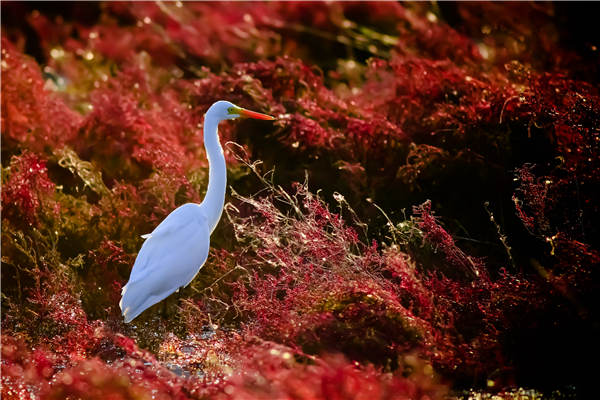The change is good for their rest


China's wetlands are a vital respite for many rare bird species on the arduous north-south migratory route. Lei Guangchun, who has been working hard for more than two decades to ensure their rejuvenation and survival, is now starting to see the fruits of his labors, Zhang Lei reports.
On Feb 2, to mark the 24th World Wetland Day, China added seven new sites to its 50-strong list of internationally important wetlands-Beida Port in Tianjin, Bila River in Inner Mongolia, Hadong in Heilongjiang, Poyang Lake near Nanji Mountain in Jiangxi, Old Yellow River Course in Minquan, Henan, Zhari Namco Lake in Tibet, and the first curve of the Yellow River in Gansu province-according to the National Forestry and Grassland Administration.
At present, the global wetland area is about 1.21 billion hectares. It is one of the three major ecosystems in the world together with the forests and oceans.
Lei Guangchun, dean of the College of Ecology and Nature Conservation at Beijing Forestry University, is among the many esteemed experts who believe the wetlands play an important and irreplaceable role in biodiversity for the ecosystem, especially in conserving water resources and nourishing wildlife.
Lei left his hometown to further his college study at the Central South Forestry University in 1978. Later, in 1997, Lei graduated with a PhD in Ecology from the University of Helsinki, Finland. He was honored with the 2018 Wetland International's Luke Huffman Wetland Science and Protection Award for a series of outstanding achievements in the research of such ecosystems, becoming the first ecologist in Asia to receive the accolade.
The dean said he has forged an inextricable bond with what he calls "the kidneys of the earth".
"I saw the wetlands on the first day after my birth," he chirps.
Lei was born in a small village in Jinshi, Hunan province, where the adjacent Lishui River and Dongting Lake intersect a vast area, creating a paradise for migratory birds and fish. Every summer, as a little boy, he would often splash around in Ximaoli Lake, catching fish and playing in the water. In 2011, the lake qualified as for construction of a National Wetland Park.




































